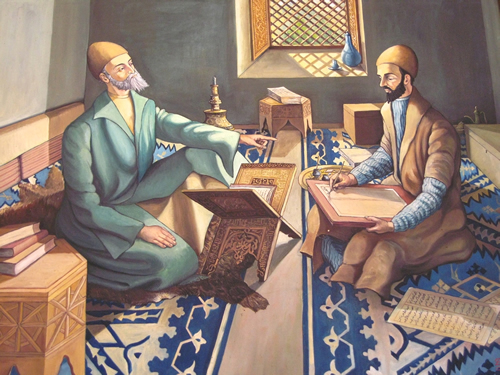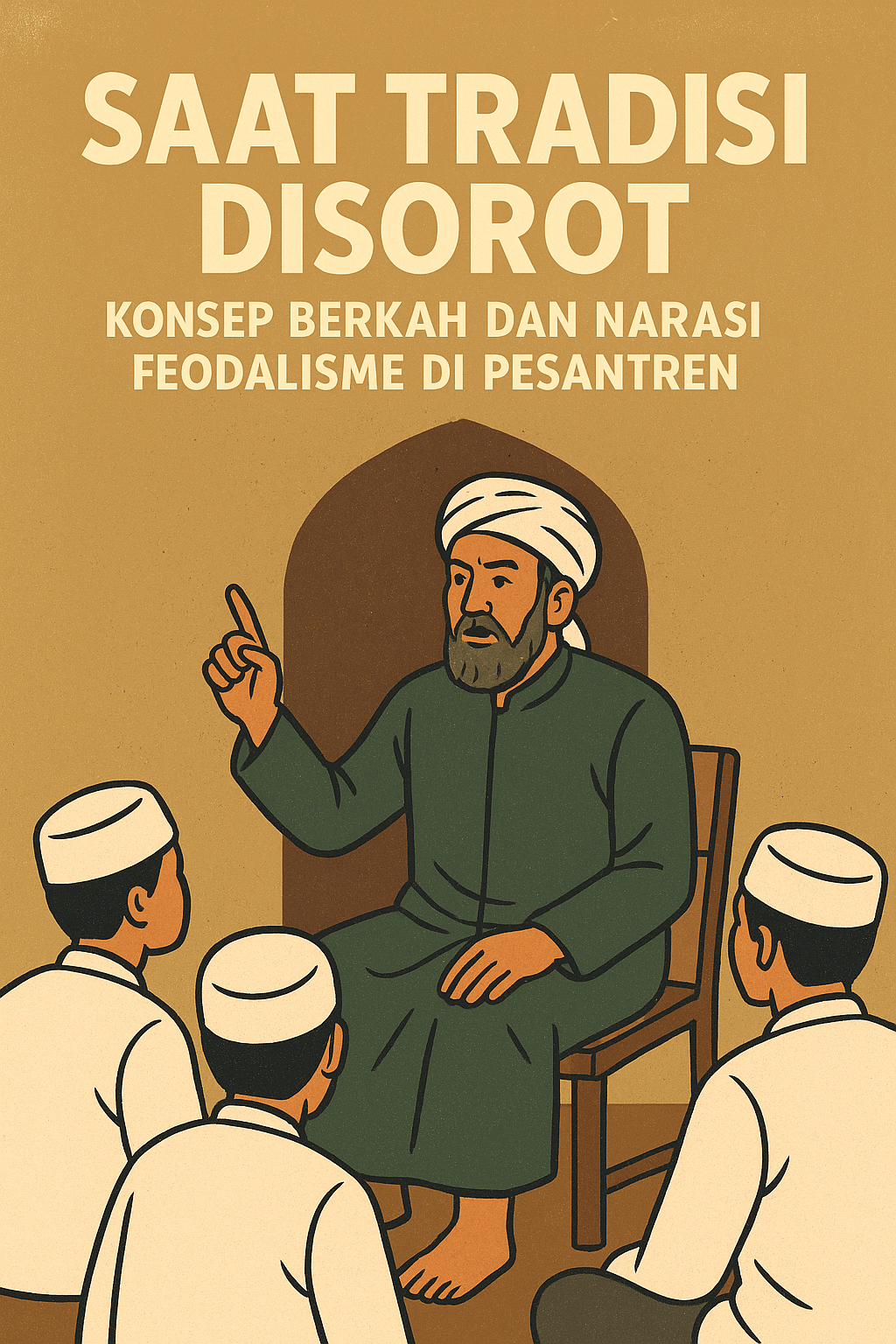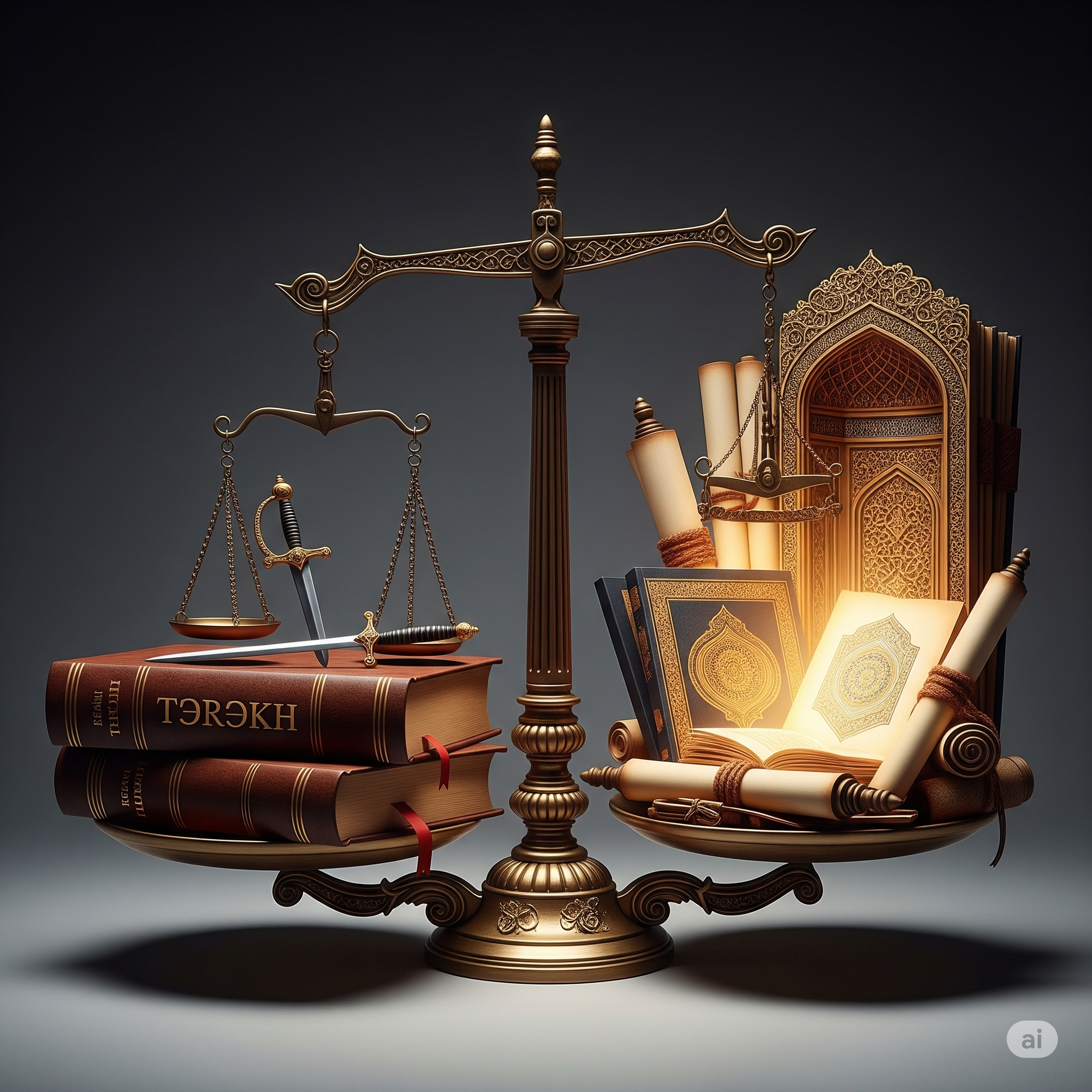Muhammad Luthfi
İlahiyat
İbrahim Çeçen Universitesi
In contemporary societies, the tension between ideals and realities is a persistent feature of political and moral life. Nowhere is this more evident than in Indonesia, where Pancasila delineates normative principles for governance and social conduct, yet the empirical realities of administration, policy-making, and civic engagement frequently diverge from these ideals. The Qur’an, in its role as hudā li-l-nās (guidance for humankind), articulates comprehensive moral and political principles, including justice (ʿadl), the protection of trust (ḥifẓ al-amānah), mutual cooperation (taʿāwun), and moral rectitude (taqwā), which collectively form the Das Sollen—the “ought” of ethical and political life. In contrast, Das Sein—the contingent reality of societal governance—often reflects corruption, nepotism, and administrative inefficiency, indicating that normative guidance has yet to be fully actualized. This divergence is not merely a function of moral or institutional weakness; it signifies a structural deficit in mediation between normative imperatives and social implementation, a gap that persists across historical and contemporary contexts. The figure of the scholar-leader, or homo mediatus, emerges as critical in bridging this divide, embodying both epistemic authority and practical governance capacity.
The concepts of Das Sollen and Das Sein demand closer scrutiny. Das Sollen signifies the normative “ought,” the realm of principles and obligations that prescribe how society and governance should ideally function. In the Indonesian context, it manifests in Pancasila’s vision of justice, equality, and collective harmony, as well as in the Qur’anic imperatives of ʿadl (justice), amānah (trust), and taqwā (moral rectitude). By contrast, Das Sein reflects the empirical realities of governance—messy, contingent, and often compromised by human limitations. It includes the everyday practices of politics, the structures of bureaucracy, and the compromises leaders make under social and economic pressures. The persistent gap between these two dimensions highlights not only a moral failure but also a structural challenge: ideals are transcendent and universal, while realities are contingent and mutable. Philosophical reflection sharpens this tension: Kant underscores that moral law as Das Sollen is unconditional and universally binding, whereas Hegel sees the unfolding of ideals into lived history as a dialectical process (Kant, 1996, p. 45–50). Max Weber, in turn, shows that authority can organize social life effectively yet remain ethically incoherent. Together, these insights clarify the depth of the problem: bridging Das Sollen and Das Sein is not automatic but requires mediation, deliberate effort, and specific agents capable of embodying both the normative and the empirical (Weber, 1978, p. 22–29).
Within the Qur’anic framework, these insights are profoundly relevant: normative principles are absolute yet require mediation to be operationalized in temporal realities. Ethical ideals are not merely aspirational; they demand practical mechanisms and agents to embed them into institutional structures and civic life. Justice, trust, and social solidarity must traverse the empirical plane, necessitating actors capable of translating divine injunctions into actionable governance frameworks.
Two dominant paradigms in authority illustrate the insufficiency of unilateral approaches. Political leadership without epistemic grounding, the archetype of homo politicus, derives authority from coercive power, charisma, or institutional office rather than rigorous moral or epistemic reasoning. Leaders in this model may act decisively, yet they are prone to reducing ethical principles to instruments of political expedience. In Indonesia, political leaders often invoke Pancasila or religious rhetoric symbolically, using normative language to consolidate legitimacy while failing to operationalize moral principles within bureaucratic or civic structures. Classical Islamic governance provides historical parallels: caliphs or sultans exercising authority without scholarly counsel could govern effectively yet faced critique from jurists for failing to realize normative justice. Conversely, the scholar-only paradigm—homo theoreticus—safeguards normative principles with epistemic rigor yet often remains detached from governance. Scholars produce enduring intellectual and moral frameworks, but without channels for practical implementation, the Das Sollen remains aspirational while the Das Sein continues unaligned (Gramsci, 1971, p. 45–48).
This structural insufficiency illuminates the necessity of the scholar-leader, or homo mediatus, whose role is to reconcile the normative with the empirical, the ideal with the real. Epistemically, the scholar-leader integrates badīhiyyāt (self-evident axiomatic truths) with naẓariyyāt (inferential reasoning), enabling the contextualization of divine principles for practical governance (Al-Razi, 1999, p. 123–130). Fakhr al-Dīn al-Rāzī underscores that reason (ʿaql) and revelation (naql) operate cooperatively, ensuring that normative precepts can guide practical decision-making without being compromised by empirical contingencies (Al-Razi, 1999, p. 135–142). The scholar-leader embodies this epistemic synthesis, operationalizing normative principles into policy frameworks, institutional protocols, and social practices that align Das Sein with Das Sollen.
Socially and politically, the scholar-leader performs a dual mediation: between the abstract norms of divine guidance and the lived realities of human society. Classical jurisprudential thought, as expressed by al-Juwaynī in al-Burhān fī Uṣūl al-Fiqh, emphasizes that legal rulings (ḥukm sharʿī) are addressed to morally responsible agents in specific circumstances, thus highlighting the contingency inherent in applying divine law (Al-Juwayni, 1979, p. 76–80). Al-Ghazālī in al-Mustaṣfā further underscores that the higher objectives (maqāṣid) of Sharia must be preserved even when literal application is constrained by empirical circumstances (Al-Ghazali, 1997, p. 98–102). These insights illustrate that the scholar-leader is not merely a hybrid of leader and jurist; rather, the scholar-leader constitutes a distinct ontological figure whose essence is mediation. By integrating epistemic insight with pragmatic governance capacity, this figure ensures that normative precepts inform governance rather than remaining abstract ideals.
Philosophical exemplars reinforce this necessity. Plato’s philosopher-king, as outlined in The Republic, embodies epistemic sovereignty: only those who apprehend the Form of the Good can govern justly, mediating between the desires of the populace and the eternal ideals of justice (Plato, 1992, p. 220–225). Al-Fārābī develops this paradigm within an Islamic metaphysical framework, portraying the First Ruler of the Virtuous City as both philosopher and prophet, capable of translating divine truths into civic order and embedding ethical guidance within institutional structures (Al-Farabi, 1985, p. 55–62). The scholar-leader, thus, is ontologically necessary; without such mediation, normative ideals remain sterile, and governance devolves into pragmatism divorced from moral coherence.
In the Indonesian context, the absence of scholar-leaders illustrates the consequences of failing to bridge Das Sollen and Das Sein. While Pancasila institutionalizes normative principles, structures capable of translating them into actionable governance are fragmented. Scholars operate primarily in educational and religious institutions, producing epistemically rigorous discourse without sufficient channels to influence policy directly. Political leaders, constrained by electoral pressures and bureaucratic imperatives, often marginalize ethical guidance, resulting in corruption, inefficiency, and moral cynicism (Weber, 1978, p. 31–37). The scholar-leader is thus crucial for operationalizing Pancasila and Qur’anic guidance, transforming aspirational principles into lived governance, and fostering coherence between law, morality, and practice.
The cultivation of scholar-leaders requires deliberate integration of epistemic and practical competencies. Educational programs must combine rigorous Qur’anic and jurisprudential training with practical leadership development, including civic engagement, organizational competence, and ethical decision-making. Apprenticeship and mentorship within both religious and governmental institutions transmit moral sensibilities, adaptive judgment, and pragmatic capacities essential for effective governance (Weber, 1978, p. 52–59). Institutional mechanisms—policy advisory councils, think tanks, and moral oversight bodies—provide practical pathways for scholarly insight to inform governance in real time. Cultural and societal valorization of the scholar-leader role confers legitimacy on those who embody both epistemic and pragmatic authority, incentivizing their emergence and sustainability.
The Qur’an provides foundational guidance for the scholar-leader model. Verses such as “O you who believe, stand firmly for justice, as witnesses to Allah, even against yourselves or your parents and relatives” (Qur’an 4:135) emphasize the ethical imperative of principled action in governance. The directive to consult those endowed with knowledge in matters of societal significance (Qur’an 3:159) underscores the epistemic dimension of governance: informed mediation is not optional but obligatory. These textual foundations reinforce the moral and epistemic legitimacy of the scholar-leader as a necessary actor in translating divine guidance into empirical practice.
Historical and contemporary exemplars demonstrate the operational feasibility of the scholar-leader. In the early Islamic polity, figures such as ʿUmar ibn al-Khaṭṭāb combined moral rectitude with administrative acumen, consulting scholars and operationalizing justice while managing the practicalities of an expanding empire (Al-Razi, 1979, p. 140–145). In the Ottoman context, the ulema performed regulatory and advisory roles, translating Islamic law into administrative norms and ensuring coherence between ethical principles and civic governance. These examples illustrate that the scholar-leader is historically grounded, bridging normative precepts and empirical realities.
Philosophically, the Das Sollen–Das Sein gap reflects the structural conditions of human epistemic and ethical limitation. Normative ideals are transcendent, universal, and absolute, while empirical realities are contingent, mutable, and plural. Human agents are thus tasked with reconciling these dimensions. The scholar-leader embodies the capacity for such reconciliation, integrating normative guidance with context-sensitive application and ensuring that ethical ideals inform rather than conflict with practical governance.
Operationally, the scholar-leader performs overlapping functions: epistemic mediation clarifies normative principles and contextual contingencies; social mediation negotiates legitimacy and consensus among stakeholders; and institutional mediation embeds ethical guidance within governance frameworks. This triadic role ensures that Das Sollen informs Das Sein and that governance embodies both moral coherence and practical efficacy.
The cultivation of scholar-leaders is, therefore, both strategic and ethical. Pedagogical programs must integrate jurisprudential and philosophical rigor with leadership training, emphasizing critical reasoning, moral judgment, and administrative competence. Institutional pathways must facilitate the translation of scholarly insight into policy. Societal recognition must valorize the dual role of scholar-leaders, reinforcing the legitimacy of those who embody moral authority and pragmatic action. The scholar-leader thus emerges as a structural necessity, ensuring that divine guidance, ethical precepts, and civic principles are operational, effective, and coherent.
Ultimately, the scholar-leader represents humanity’s perennial hope: a figure capable of harmonizing ideals and realities, epistemic rigor and practical competence, ethical imperatives and institutional implementation. From Plato’s philosopher-king to al-Fārābī’s First Ruler, from classical Islamic jurists to contemporary Indonesian exemplars, the structural necessity of this figure is evident. The scholar-leader operationalizes divine guidance, ethical principles, and civic norms, bridging the persistent tension between what ought to be and what is. In cultivating such figures, Indonesia—and any society confronting the divergence between normative ideals and empirical realities—can transform aspirational principles into lived governance, bridging Das Sollen and Das Sein, and fostering ethical, just, and sustainable social order.
Bibliography:
- Al-Fārābī. (1985). Al-Madīnah al-Fāḍilah (The Virtuous City) (R. Walzer, Trans.). Oxford: Clarendon Press.
- Al-Ghazālī, A. H. (1997). Al-Mustaṣfā min ʿIlm al-Uṣūl (Ḥ. ibn Z. Ḥāfiẓ, Ed.). Madinah: al-Jāmiʿah al-Islāmiyyah.
- Al-Juwaynī, ʿA. M. (1979). Al-Burhān fī Uṣūl al-Fiqh (ʿA. al-ʿAẓīm al-Dīb, Ed.). Qatar: Maṭbaʿat Wizārat al-Thaqāfah.
- Al-Rāzī, F. D. (1999). Al-Maḥṣūl fī ʿIlm al-Uṣūl (Ṭ. J. al-ʿAlwānī, Ed.). Beirut: Muʾassasat al-Risālah.
- Gramsci, A. (1971). Selections from the Prison Notebooks (Q. Hoare & G. N. Smith, Trans.). New York: International Publishers.
- Kant, I. (1996). Critique of Practical Reason (M. J. Gregor, Trans.). Cambridge: Cambridge University Press.
- Plato. (1992). Republic (G. M. A. Grube, Trans.; C. D. C. Reeve, Rev.). Indianapolis: Hackett.
- The Qur’an.
- Weber, M. (1978). Economy and Society: An Outline of Interpretive Sociology (G. Roth & C. Wittich, Eds.). Berkeley: University of California Press.


